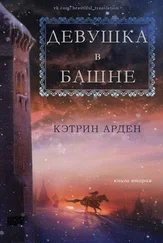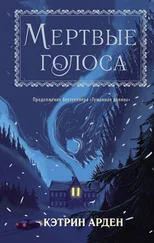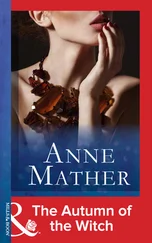Dying, she thought, ought to bring some sense of completion, of a journey ended. But this was just being caught out of life, as she was, with all her sweat and tears and terrors, her wishes and regrets.
The cage was small enough that she would have to crouch inside it. A blade at her back prodded her forward. The barred wooden door slammed, was tied securely shut.
Vasya’s sight fractured with fear. The world became a series of disjointed impressions: the black, fire-lit mass of the crowd; a last glimpse of sky; and memories, of her childhood in the forest, of her family, of Solovey.
The men were tossing torches onto the wood. Smoke billowed, and then the first log caught, crackling. For an instant, her eyes found the stark-white face of Konstantin Nikonovich. He lifted his hand. The hunger, the grief, the joy in his gaze was for her alone. Then a curl of smoke blotted him out.
She wrapped both hands around the bars. Splinters stabbed into her fingers. The smoke stung her face and set her coughing. Somewhere dim and far away, she thought she heard hoofbeats, new voices calling, but they were in another world; her world was made of fire.
Many say, better to die, until the time comes to actually do it, Morozko had told her once. He was right. The heat was already unbearable. But he was nowhere to be seen; there was no refuge for her yet in the forest beyond life.
She couldn’t breathe.
My grandmother came to Moscow and never left. Now it is my turn. I am never going to leave this cage. I will be ash on the wind, and I will never see my family again…
Rage filled her suddenly; it opened her eyes, sent her back, crouching, to her feet. Never? All those hours, those memories stolen by one mad priest, who had seen his chance for vengeance and taken it? Would they say of her one day, She never left; her tale ended there on the ice? And what of Marya? Brave, doomed Marya? Perhaps Konstantin would turn on her next, the witch-child who knew his crime.
There was no way out. She was crouched on the floor of a locked cage, flames rising all around, burning her already-blistered face. There was no way out, save by dying. The cage would not break. It was impossible.
Impossible.
Morozko had said that when she dragged him against hope into the inferno that was Moscow.
Magic is forgetting the world was ever other than as you willed it.
On a surge of blind will, Vasilisa Petrovna set her hands onto the thick, burning-hot bars of her cage, and pulled .
The heavy wood broke apart.
Vasya clung, disbelieving, to the new-made gap. Her vision was graying. The cage smoldered; beyond hung a curtain of fire. What matter if she’d broken the bars? The fire would take her. If by some miracle it did not, then she’d be torn apart by the crowd.
But still she crawled out of the cage, put her hands, then her face, into the fire, got to her feet. An instant she stood there, wavering, beyond fear, untouched by the flames. She’d forgotten they could burn her.
And then she leaped down.
Down through the flames of her own funeral pyre; she struck the snow and rolled, sweating, sooty, bloody. A soundless cry went up from all the watching chyerti. She was blistered, but not on fire.
Alive.
Vasya scrambled up, looking wildly about her, but no one cried out; Konstantin— everyone —was still watching the fire, as though she had not come hurtling down at all. It was like being a ghost. Was she dead? Had she fallen into another world, like a devil that could not touch the earth, but only live above or beneath it? Dimly, she thought she heard the sound of hoofbeats getting louder, thought she heard a familiar voice shouting her name.
But she didn’t heed. For a different voice spoke, low and amused, seemingly in her ear. “Well,” it said, “I thought I was beyond surprising.”
And then it laughed.
* * *
VASYA WHIPPED HER HEAD AROUND, fell sprawling into the melted slush. The haze of smoke choked her; the air rippled like cloth in the heat, made formless shadows of the ring of people. Still they didn’t see her. Perhaps she had died, or fallen in truth into a world of devils. She couldn’t feel her wounds, only her weakness. Nothing seemed real. Certainly not the man standing over her.
Not a man. A chyert.
“You,” she whispered.
He stood too close to the fire and should have been scorched, but wasn’t. His single eye glittered in a face seamed with blue scars.
The last time she’d seen him, he had killed her father.
“Vasilisa Petrovna,” said the chyert called Medved.
Vasya lurched to her feet, caught between the devil and the fire. “No. You’re not here, you cannot be here.”
He did not answer in words, but caught her chin in his hand, tilted her face up to his. The lid of his missing eye was sewn shut. His thick fingers smelled of carrion and hot metal and were quite real. He grinned down at her. “No?”
She wrenched back, wild-eyed. There was blood from her split lip on his fingers; he licked it off and added, confidingly, “Tell me: how long do you think your newfound power will avail you?” He cast an appraising eye upon the mob. “They are going to tear you to pieces.”
“You—were bound,” Vasya whispered, in the voice of a girl in a nightmare. It could have been a nightmare. The Bear had haunted her dreams since her father died, and now they stood face-to-face in a storm of smoke and red light. “You cannot be here.”
“Bound?” said the Bear. In the single gray eye flashed a memory of fury; his snarling shadow was not the shadow of a man. “Oh, yes,” he added, with irony. “You and your father bound me, with the help of my skulking twin.” He bared his teeth. “Aren’t you fortunate that I am free? I am going to save your life.”
She stared. Reality wavered like the air around the fire.
“Perhaps I am not the savior you want,” added the Bear, sly now, “but my noble brother could not come himself. You shattered his power when you shattered his blue jewel; and then spring came. He is less than a ghost. So he freed me and sent me. Went to a lot of trouble, really.” The single eye slid over her skin, and he pursed his lips. “No accounting for taste.”
“No,” was all she could manage. “He would not.” She was going to be sick, from terror and shock, from the animal-stink of the half-seen crowd, concealed by smoke.
The chyert reached into his ragged sleeve. With a look of distaste, he thrust a palm-sized wooden bird into her hand. “He gave me this to give you. A token. He traded his freedom for your life. Now we must go.”
The words seemed to run together in her mind; she couldn’t make sense of them. The wooden bird was carved, agonizingly, to look like a nightingale. She had seen the winter-king, the Bear’s brother, carving a bird once, beneath a spruce tree in the snow. Her hand closed about the carving even as she said, “You’re lying. You didn’t save my life.” She wished for a drink of water. She wished she could wake up.
“Not yet,” the Bear said and glanced up at the burning cage. The mockery vanished from his face. “But you will not escape the city, unless you come with me.” He caught her hand suddenly, grip sure. “The bargain was for your life. I have sworn it, Vasilisa Petrovna. Come. Now.”
Not a dream. Not a dream. He killed my father. She licked her lips, forced her voice to work. “If you are free, what will you do after you save my life?”
His scarred mouth quirked. “Stay with me and find out.”
“Never.”
“Very well. Then I will see you safe, as I promised, and the rest doesn’t concern you.”
Читать дальше
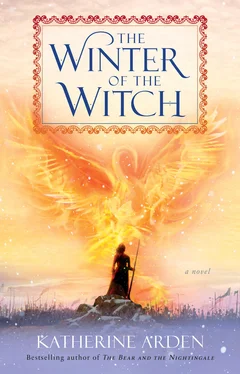

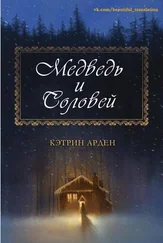

![Кэтрин Арден - Мертвые голоса [litres]](/books/389907/ketrin-arden-mertvye-golosa-litres-thumb.webp)

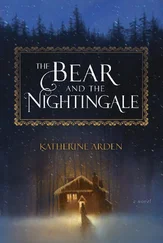
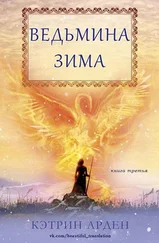
![Кэтрин Арден - Девушка в башне [litres]](/books/415518/ketrin-arden-devushka-v-bashne-litres-thumb.webp)
